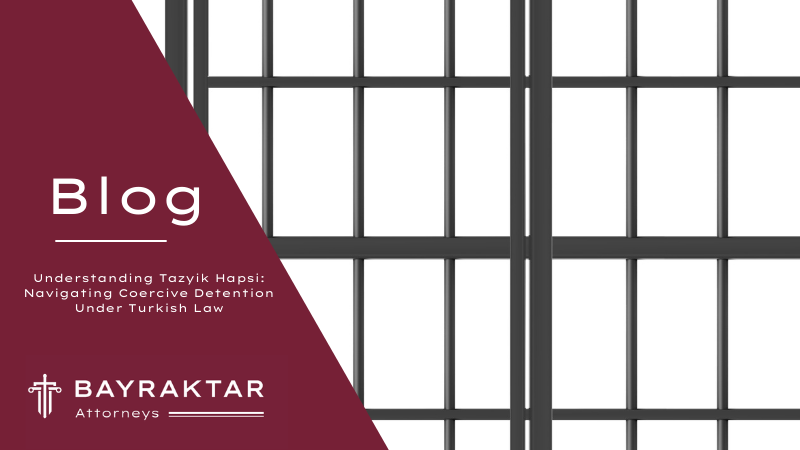
Understanding Tazyik Hapsi: Navigating Coercive Detention Under Turkish Law
When foreigners become embroiled in the legal intricacies of a foreign country, comprehension of local judicial processes is vital. In Turkey, one such legal concept that merits explanation is “tazyik hapsi nedir?”, or in English, “What is coercive detention?”
This blog post aims to elucidate the notion of coercive detention (‘tazyik hapsi’) and its implications within the Turkish legal framework.
What is Tazyik Hapsi?
In Turkish law, tazyik hapsi refers to a form of detention used by courts as a means to enforce judicial orders. This specific type of detention is not punitive in nature; rather, it serves as a compelling mechanism to encourage compliance with a court verdict, typically in civil or family law cases.
Coercive detention is usually imposed in circumstances where an individual is obligated to take an action or refrain from an action and fails to comply with this obligation.
Legal Groundworks and Conditions for Tazyik Hapsi
Rooted in the Turkish Enforcement and Bankruptcy Law and Civil Procedure Law, tazyik hapsi can be considered as a last resort when other enforcement methods have proven unsuccessful.
The conditions under which coercive detention can be applied are stringent; the court must have clear evidence that the individual has the ability to comply with the order but deliberately chooses not to.
Furthermore, coercive detention’s duration is capped by law to ensure that it serves its purpose without leading to unjustified deprivation of liberty.
Implications of Coercive Detention for Foreign Residents in Turkey
For foreigners navigating the Turkish legal system, understanding how tazyik hapsi could potentially affect them is crucial. Those who are subject to a court order should take such mandates seriously, given the possibility of coercive detention.
It is advisable for foreigners, especially those involved in legal disputes or business contracts, to seek guidance from local attorneys who can provide insight into how best to comply with such orders and avoid the imposition of tazyik hapsi.
Seeking Legal Assistance
Given the complexities of Turkish law, anyone facing the possibility of coercive detention should consult with legal experts like Bayraktar Attorneys. Professional guidance can not only clarify what tazyik hapsi nedir but also help develop a strategy to address any court orders you may face. Understanding your rights and obligations, and how to act in accordance with them, is an indispensable step in preventing the stressful experience of detention.
Being equipped with knowledge about tazyik hapsi can make a significant difference in dealing with the legal challenges one might face in Turkey. With the right information and legal support, foreigners can confidently navigate the intricacies of the Turkish legal system, ensuring their rights are protected and respected in accordance with the law.
Recently Added Blogs



.png)
.png)
.png)
.png)
